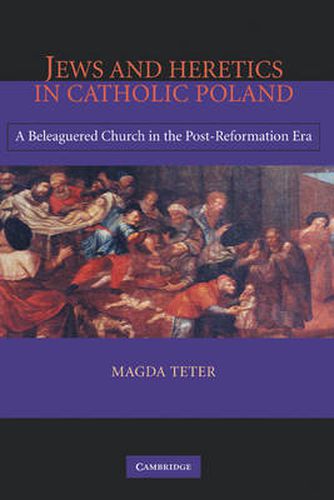Readings Newsletter
Become a Readings Member to make your shopping experience even easier.
Sign in or sign up for free!
You’re not far away from qualifying for FREE standard shipping within Australia
You’ve qualified for FREE standard shipping within Australia
The cart is loading…






Jews and Heretics in Catholic Poland takes issue with historians’ common contention that the Catholic Church triumphed in Counter-Reformation Poland. In fact, the Church’s own sources show that the story is far more complex. From the rise of the Reformation and the rapid dissemination of these new ideas through printing, the Catholic Church was overcome with a strong sense of insecurity. The ‘infidel Jews, enemies of Christianity’ became symbols of the Church’s weakness and, simultaneously, instruments of its defense against all of its other adversaries. This process helped form a Polish identity that led, in the case of Jews, to racial anti-Semitism and to the exclusion of Jews from the category of Poles. This book portrays Jews not only as victims of Church persecution but as active participants in Polish society who as allies of the nobles, placed in positions of power, had more influence than has been recognized.
$9.00 standard shipping within Australia
FREE standard shipping within Australia for orders over $100.00
Express & International shipping calculated at checkout
Jews and Heretics in Catholic Poland takes issue with historians’ common contention that the Catholic Church triumphed in Counter-Reformation Poland. In fact, the Church’s own sources show that the story is far more complex. From the rise of the Reformation and the rapid dissemination of these new ideas through printing, the Catholic Church was overcome with a strong sense of insecurity. The ‘infidel Jews, enemies of Christianity’ became symbols of the Church’s weakness and, simultaneously, instruments of its defense against all of its other adversaries. This process helped form a Polish identity that led, in the case of Jews, to racial anti-Semitism and to the exclusion of Jews from the category of Poles. This book portrays Jews not only as victims of Church persecution but as active participants in Polish society who as allies of the nobles, placed in positions of power, had more influence than has been recognized.